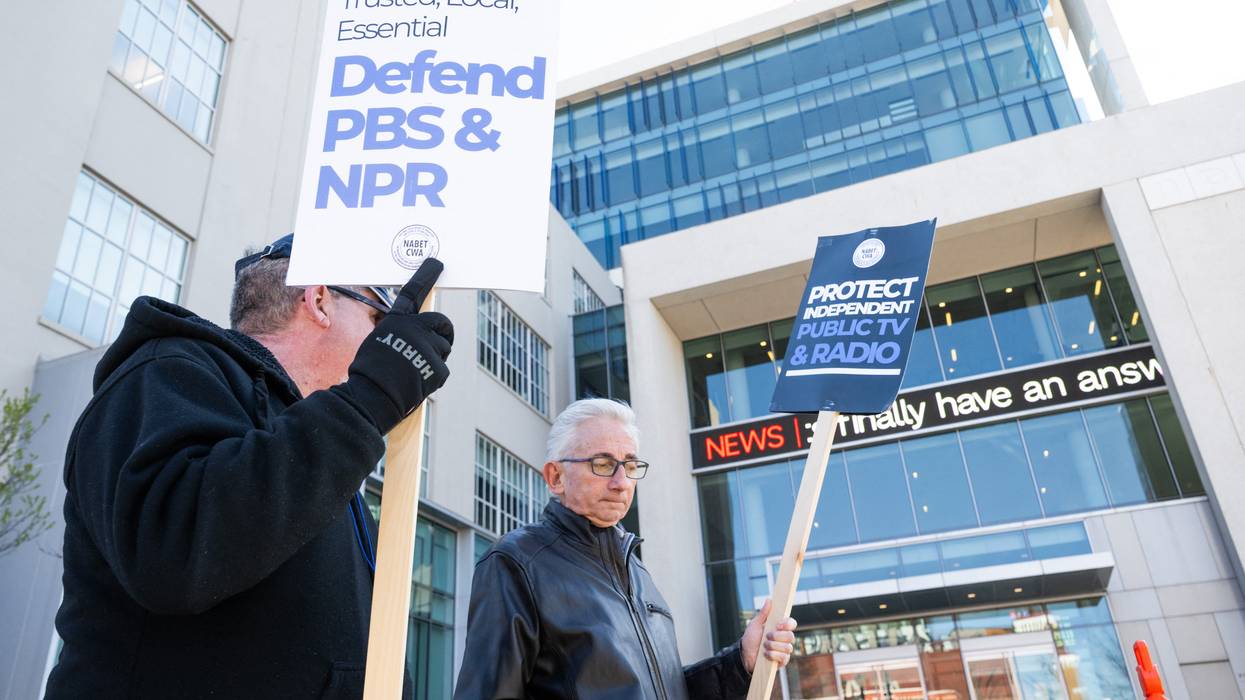DOGE Wasted Tens of Billions While Chainsawing the Government in the Name of 'Efficiency': Senate Report
A new report found that in just six months, Elon Musk's cost-cutting agency wasted more than $21 billion. Other estimates have found that the cuts will cost more than they save in the long run.
The Department of Government Efficiency wasn't so efficient after all. In fact, it was extraordinarily wasteful, according to a Thursday report by the U.S. Senate's investigations subcommittee.
When Elon Musk spent the early part of this year ransacking the federal government, the billionaire promised that his mass layoffs of federal employees, his choking off of critical foreign aid, and his gutting of consumer watchdogs all served a greater purpose: saving the government—and by extension, the American people—money by rooting out waste.
Musk is already known to have wildly exaggerated the amount that his initiative was saving the public. Government spending in 2025 has been higher than previous years despite Musk's dramatic cuts.
Meanwhile, some analyses after the fact have estimated that the initiatives might actually cost taxpayers money in the long run by slashing funds for tax collection and other forms of spending that increase economic activity.
(Graphic: The Brookings Institute, Tracking Federal Expenditures in Real Time)
The staff report released by the office of Sen. Richard Blumenthal (Conn.)—the ranking Democrat on the Senate Homeland Security Permanent Subcommittee on Investigations (PSI)—only focuses on waste by DOGE that can be quantified in the here-and-now. It finds that in just six months of operation, DOGE wasted more than $21 billion.
This comes at "the very same time," Blumenthal said, that "the Trump administration is cutting healthcare, nutrition assistance, and emergency services in the name of 'efficiency' and 'savings,'" via the recently passed "One Big Beautiful Bill Act," which itself is projected to add $3.4 trillion to the federal deficit over the next 10 years.
Blumenthal said his investigation shows that "DOGE was clearly never about efficiency or saving the American taxpayer money."
By far the largest source of waste it identifies comes from Musk's mass layoffs of nearly 200,000 federal employees. In January, he announced the "Deferred Resignation Program" (DRP), which he described as the "fork in the road."
In order to quickly thin the ranks of government, Musk offered federal employees the opportunity to retire early with their benefits and pay through September 30—a deal that around 200,000 took. The Senate report calculates that the government has spent $14.8 billion to pay these employees not to work for eight months.
Roughly another 100,000 employees were also involuntarily fired from their jobs, and had to receive severance pay that amounts to an additional $6.1 billion.
DOGE's funding freezes also resulted in massive waste: freezes on loans for energy utility projects meant that the government lost out on $263 million worth of interest payments and fees. Meanwhile, $110 million worth of food and medicine was left to spoil in warehouses due to the shuttering of the U.S. Agency for International Development (USAID).
While many of these costs are temporary, other studies looking at the long-term effects of DOGE have found that many of the programs it cut also brought in vastly more revenue than they cost to run.
For instance, according to Yale's Budget Lab, DOGE's firing of thousands of Internal Revenue Service (IRS) employees could cost $395 billion in lost revenues over the next decade, and potentially as much as $2.4 trillion if the decrease in enforcement leads to more tax-dodging.
Musk also virtually eliminated the Consumer Financial Protection Bureau (CFPB), which has returned over $26 billion to American consumers since its creation in 2011 while costing a fraction of that amount to run.
Cuts to public health research by the National Institutes of Health (NIH) may also lead to significant costs in the long run. An April study by the University of Maryland found that it could cost the U.S. 68,000 jobs and $16 billion in revenue annually.
Even the $125 million cut from USAID—which the White House has claimed results in "no return for the American people"—is projected to result in nearly $29 billion lost each year by U.S.-based organizations.
Meanwhile, the human costs to these cuts, especially to USAID, have been catastrophic, with hundreds of thousands already dead from preventable diseases in a matter of months, and potentially as many as 14 million by the end of the decade.
As economics writer Maia Mindel summarized in a post on X: "Okay, yeah, so DOGE was illegal and didn't cancel any big-ticket items and also it didn't increase government efficiency and it lied about all its accomplishments and also none of its staff were even remotely qualified. But at least a million Africans died. Take that, libs."


